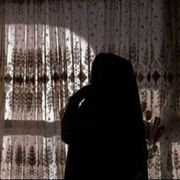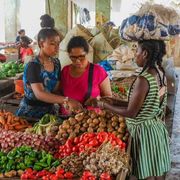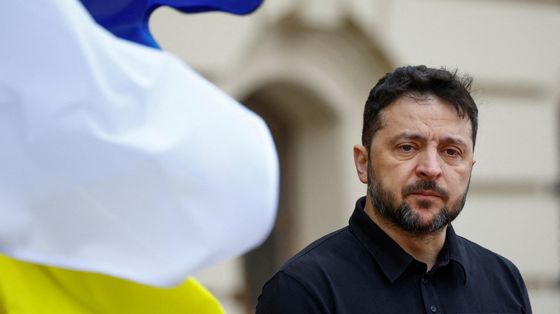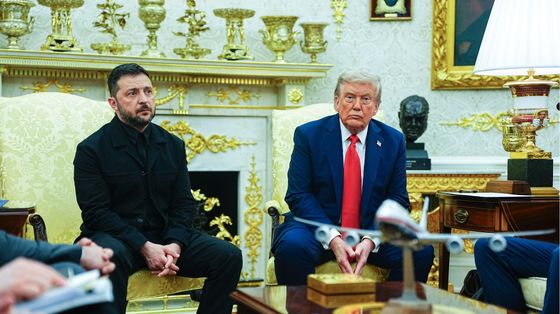«We, warriors for justice in Daesh-ravaged Iraq»
di Redazione
Adiba: «I lost everything because of terrorism. We have suffered enough, it’s time for the world to listen». This is how, in Sinjar, the city that endured the horror, efforts are being made to reb
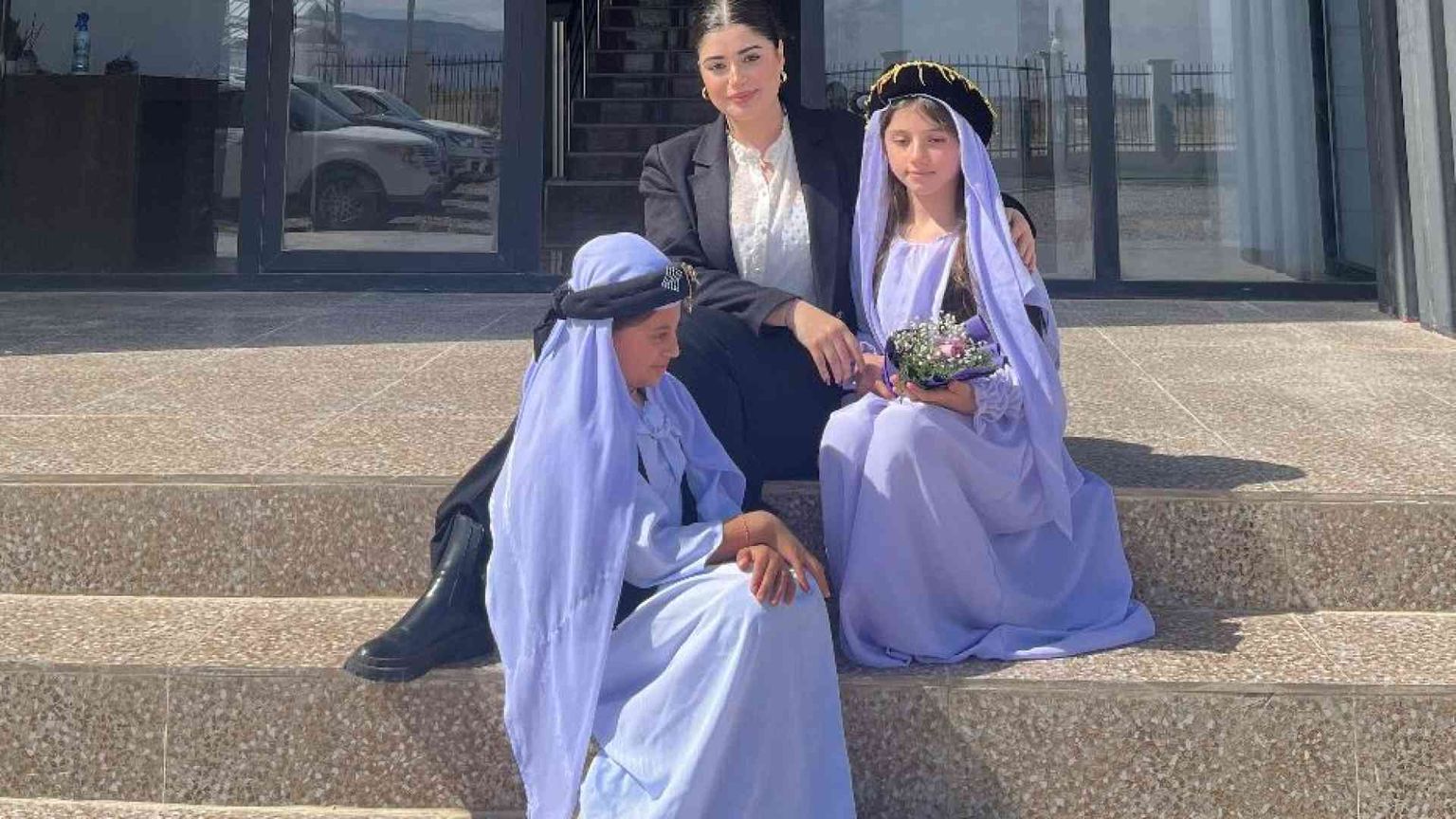
“Women without borders” is the Avvenire's new initiative for International Women's Day: a series of exclusive reports telling the stories of women's conditions in forgotten countries. (MORE INFORMATION HERE)
«I lost everything because of Daesh. But I don't want them to take away my voice as well. We have suffered enough, and it's time for the world to listen to us» said Adiba, her words strong and determined. Ten years have passed since the Yazidi genocide, but the pain remains. On August 3, 2014, the Islamic State launched an attack against the Yazidi community in Sinjar, northern Iraq; thousands of people were killed, women and children were enslaved, and the entire community was devastated. To date, 93 mass graves have been discovered, and in another 40, exhumation operations have not yet begun. Over 2,645 Yazidis are still missing. Amidst all this destruction, Yazidi women not only survived but became warriors for justice. Among them is Adiba Murad, a Yazidi survivor and member of the Sinjar Open Space Dialogue (SOS-D), an initiative led by the House of Coexistence NGO that brings together 50 Yazidi activists working for change. Like many others, Adiba has transformed her suffering into activism and is now on the front lines, demanding recognition, justice, and safety for her people.
Survivors turned activists
Many Yazidi women who endured Daesh's brutality have become leaders in their community. Lamiya Haji Bashar, Farida Abbas, and Shireen Kherow, all former prisoners, are now influential advocates for human rights, denouncing gender violence, and demanding justice. «We survived, but surviving is not enough. We must fight for justice so that no girl will ever face what we experienced» says Lamiya, who has dedicated her life to defending survivors and now emphasizes the importance of making their voices heard. The most internationally recognized Yazidi activist is Nadia Murad, a survivor of Daesh captivity and the first Yazidi woman to receive the Nobel Peace Prize. Through her work with the Nadia Initiative, she brought the Yazidi tragedy to global attention, urging world leaders to recognize the genocide. «I want to be the last girl in the world with a story like mine» Nadia often says, highlighting her commitment to ending atrocities like the war rapes she endured. Ten years after the genocide, two-thirds of the Yazidi people are still displaced. Lamiya: «We survived, now we must fight so that no girl ever suffers the violence that we went through».
«An entire generation still lives in tents»
The Yazidi genocide didn't end in 2014; it continues in the form of displacement, insecurity, and governmental negligence. Mirza Dinnayi, winner of the Aurora Prize for Awakening Humanity and founder of the House of Coexistence, describes an alarming reality: «Ten years later, the Yazidi community is still suffering. In some ways, the consequences of the genocide are worse than the attack itself. Two-thirds of Yazidis are still displaced, with no serious government plan for their return or the reconstruction of their homeland. An entire generation of children has been born in tents, not knowing what it means to have a home. Justice has failed, and Yazidis cannot trust state institutions. Even though they are Iraqi citizens, they are practically treated as third-class citizens».
The House of Coexistence: a platform for justice
The House of Coexistence (HoC) has played a crucial role in supporting Yazidi survivors. In 2023, it launched the National Women of Courage Prize to honor the courage of Iraqi women. The inaugural prize was awarded to Lamiya Haji Bashar for her extraordinary commitment to defending the rights of women and children.
The law for survivors: a delayed victory
In 2021, the Iraqi Parliament passed the Yazidi Survivors Law, recognizing the genocide and offering financial reparations, psychological support, and reintegration programs. However, its implementation has been slow and hindered by bureaucracy. «Financial reparations alone are not enough» says Lamiya Haji Bashar. «Real justice means punishing the perpetrators. But today we see impunity: Daesh fighters could be released due to the General Amnesty Law». While Yazidi survivors try to rebuild their lives, two new laws threaten to undo the progress made: the General Amnesty Law, which initially raised fears that Daesh members could be freed. However, recent official statements have ruled out this possibility. The other concern is the changes to the Civil Status Law, passed in January 2025, which could legalize child marriage, disproportionately affecting Yazidi girls and those from other minorities. These two laws have sparked strong opposition from Yazidi activists and human rights organizations. Amnesty International has condemned the amendment to the Civil Status Law, accusing it of violating the fundamental rights of women and girls.
Yazidi displaced in camps: the struggle to return home
After nearly a decade, more than 200,000 Yazidis still live in internally displaced persons camps in Kurdistan. The Sinjar area remains unstable and dangerous, with tensions between armed groups and destroyed infrastructure. «We cannot return because the situation is dangerous. Our homes are destroyed, and no one is protecting us» explains Adiba Murad. In August 2024, a new wave of hate speech shook the Yazidi community, fueled by extremist religious figures in Kurdistan. According to the Sinjar Open Space Dialogue, over a million hate messages against Yazidis were documented in less than a week. «This is not just hate speech; it's a direct threat to Yazidi lives. We have already endured a genocide; we cannot allow dehumanization to repeat» explains Basma Haji, an activist and member of the House of Coexistence board. Moreover, it is urgent to break free from the exclusive label of victims. «The world only sees us as victims of Daesh. But we are much more: leaders, activists, educators. We have turned our pain into action» adds Basma Haji. Despite the obstacles, Yazidi women continue to fight for justice and recognition, as Adiba Murad reiterates: «We are not just survivors. We are warriors. And we will not stop until we have justice».
The House of Coexistence: promoting peace, education, and empowerment of young women
Located in Sinjar, Iraq, the House of Coexistence is a multicultural community center dedicated to promoting peace, coexistence, and human rights. Founded by 2019 Aurora Prize winner Mirza Dinnayi, the House is also a beacon of hope for the post-war communities in the region, particularly for women, youth, and survivors of the 2014 Yazidi genocide. Founded as an independent, non-profit NGO, it quickly became a key player in peacebuilding and humanitarian efforts, receiving national and international recognition. The House serves as a center for education, documentation, cultural exchange, and therapeutic support, offering essential services such as training classrooms, survivor care units, and facilities for local and international NGOs to collaborate and provide aid. The vision of the House is rooted in the belief that sustainable peace can only be achieved through education, empowerment, and reconciliation. The center operates through five key pillars: education, empowerment of women and girls, strengthening local civil society organizations, promoting social cohesion, and fostering sustainable environmental development. The center’s educational initiatives focus on improving underserved communities, especially women and girls in rural areas, while its empowerment programs aim to combat gender inequality and give women a platform for leadership. The House is led by women, and all members of the board of directors are women, demonstrating the center's commitment to empowering women and giving them leadership roles in shaping the future of the region.
© RIPRODUZIONE RISERVATA


